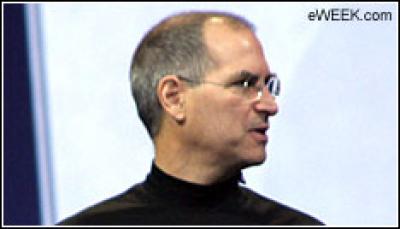Apple’s Jobs Wanted To Play Nice With Palm

Apple CEO Steve Jobs tried to get former Palm CEO Ed Colligan to agree to not hire away each other’s employees, according to a report from Bloomberg
The five miles of Silicon Valley roadway between the Apple and Palm headquarters is apparently well trodden, as employees of each company have defected to the other—a trend that Steve Jobs sought to put a stop to in 2007, according to Bloomberg.
Bloomberg reported on 20 Aug that it has reviewed “communications” that occurred between Apple CEO Steve Jobs and former Palm CEO Ed Colligan, in which Jobs proposed that each refrain from hiring the employees of the other.
Concerned that Palm was recruiting away Apple employees, Jobs reportedly told Colligan, “We must do whatever can to stop this.”
Colligan declined, responding that the idea “is not only wrong, it is likely illegal,” Bloomberg reported.
At the time, Colligan had recently hired Jon Rubinstein, who had worked with Jobs for more than 15 years and was head of Apple’s iPod division. Rubinstein—who it’s said originally proposed a keyboard for the iPhone—went on to design the Palm Pre and is now the CEO of Palm. Colligan announced on 10 June that he would be joining Elevation Partners, which is partly owned by U2 front man Bono and Palm Pre booster Roger McNamee.
Bloomberg reported that a Palm spokesperson said Palm has not been contacted by the Justice Department, but that the department is investigating “possible collusion in hiring among technology companies.”
“In his August 2007 communications with Jobs, Colligan said Apple had hired at least 2 percent of Palm’s work force as the company developed the iPhone,” Bloomberg reported. The iPhone was first released on 29 June, 2007.
Roger Kay, an analyst with Endpoint Technologies Associates, points out that noncompete clauses in contracts, in which an employee agrees not to pursue similar work from a competing company, are illegal in California.
“The Justice Department may be looking at whether [Jobs and Colligan] made a gentleman’s agreement, which is effectively a noncomplete but legally a different thing,” Kay said. “In a case like that, the Justice Department wants to get in there and say, ‘You can’t divide up the talent among yourselves.'”
The timing of such news could also play out poorly for Apple, Kay told eWEEK.
“There are enough different behaviors that Apple has displayed over the last few years that indicate that they like to line a situation up so that it really works for them,” he said. “This is exactly what the Justice Department is looking at in respect to Apple and Google. So it becomes another data point [in the evidence] that Apple has engaged in this behavior from time to time.” To someone at the Justice Department, news like this likely suggests, “Hey, there might be more to look at here,” Kay added.
In the summer of 2007, Jobs had everything to lose, while Palm had nothing to lose; at the time, Colligan was busy rounding up talent for his new company.
“It shows his position at the time,” Kay said. “I don’t have any illusions about the higher moral superiority of one company over another.”